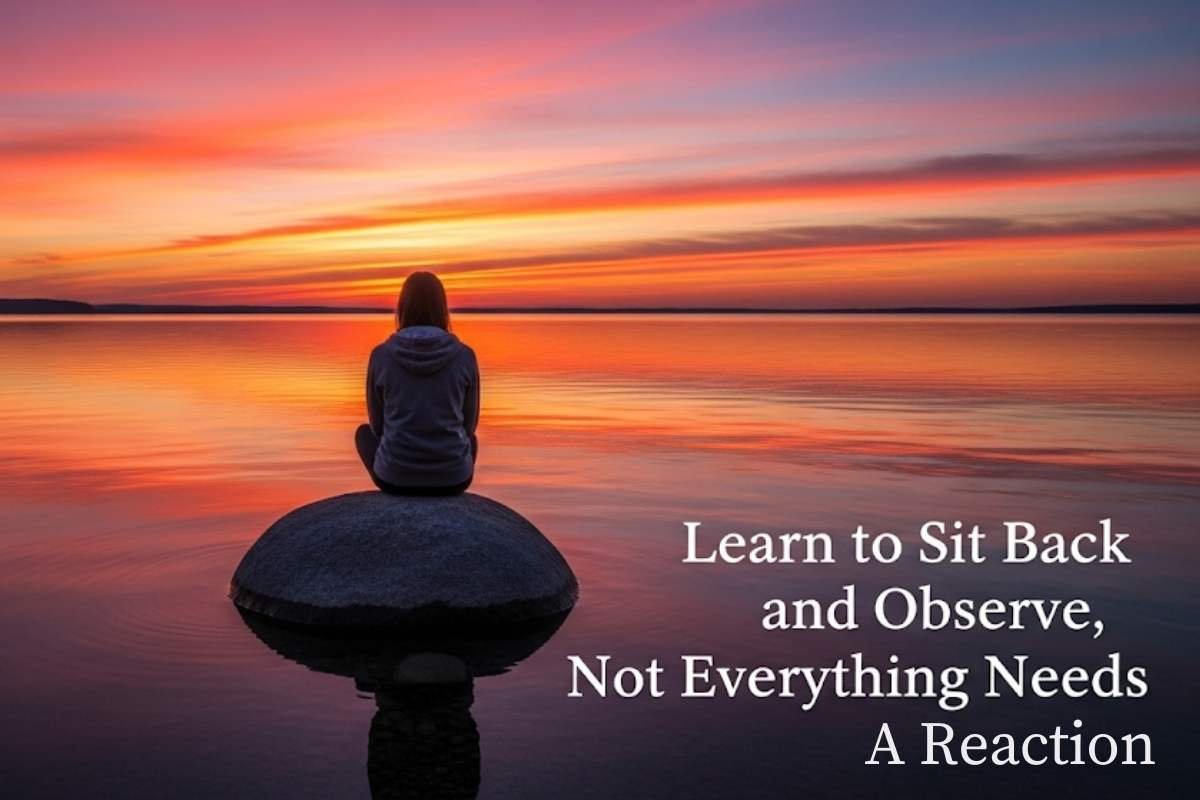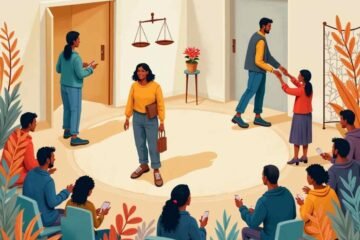Life moves fast and everyone seems to expect an immediate reaction. Messages notifications and daily events push us to respond quickly often without thinking.
But not everything demands a reaction. Learn To Sit Back And Observe: Not Everything Demands A Reaction – tymoff teaches the art of pausing and noticing before acting.
By observing first you gain clarity reduce stress and make wiser choices. This simple habit can transform the way you think feel and respond to life.
What is Learn To Sit Back And Observe: Not Everything Demands A Reaction – tymoff?

This concept is about pausing and noticing what is happening around you before responding. It teaches that not every situation message or comment requires immediate action.
By observing first you create mental space to respond thoughtfully rather than react impulsively. This skill improves emotional control and decision making in daily life.
It also helps reduce unnecessary stress caused by hasty reactions. Essentially it is a practice of mindfulness that strengthens patience and awareness consistently.
How to Start Sitting Back?
The first step is awareness. Notice when you feel the urge to react immediately. Take a deep breath and pause. Observe your surroundings and your feelings without judgment.
Give yourself a few seconds to think before responding. This small pause can prevent regrets later. Over tim, this becomes a natural habit reducing impulsive actions in daily life.
With practice you start to notice patterns in your reactions making it easier to stay calm in challenging situations. This awareness strengthens emotional control and builds patience gradually.
Why Observing Matters?
When you take a moment to observe you allow yourself space to understand what is really happening. Reacting instantly can lead to unnecessary stress or conflicts.
Observation gives you the chance to see patterns and choose thoughtful responses. It also helps in understanding others better and reduces misunderstandings.
People who master this tend to stay calm even in tense situations. This is not about ignoring problems but about handling them wisely.
Benefits of Sitting Back and Observing
Sitting back and observing has multiple benefits for your mind and body. It reduces impulsive decisions and prevents unnecessary stress in daily life.
You gain clarity about situations helping you act intentionally rather than react automatically. Emotional intelligence grows as you learn to understand your own triggers.
Your relationships improve because thoughtful responses prevent conflicts. Over time this practice leads to a calmer more balanced lifestyle that fosters mental well being.
How Observation Improves Decision Making?
Observing before reacting sharpens your decision making skills. By taking a pause you collect more information and see situations clearly.
This allows you to weigh options and consequences carefully. Decisions made from observation are usually more rational and less emotionally driven.
Over time this practice helps you anticipate outcomes better. You develop confidence in your choices and reduce regrets from impulsive actions.
Daily Practices to Enhance Observational Skills!

Incorporating observation into daily routines is simple and effective. Start with short pauses before responding to messages or events.
During breaks take note of surroundings body language and tone of voice. Reflect quietly on your feelings and reactions to situations.
Journaling observations can strengthen the habit over time. Regular practice builds mindfulness patience and clarity in both personal and professional life.
Recognizing What Truly Demands Action!
Not every situation needs your attention. Some comments news or events pass quickly and don’t affect your life. By learning to filter what truly matters you conserve energy for important decisions.
Observation helps you identify these moments. You respond only when necessary rather than reacting to every minor disturbance.
This approach builds calmness and wisdom gradually. Over time you wil notice fewer distractions pulling you off course. It allows you to focus on what truly adds value to your life.
Emotional Benefits of Observing!
Sitting back and observing reduces anxiety and emotional strain. You no longer feel pressured to respond to every situation immediately. Your mind becomes clearer, and stress levels drop.
Emotional intelligence grows as you learn to understand triggers and reactions. Patience develops naturally. This skill also improves relationships by preventing conflicts caused by hasty reactions.
Over time you start to notice patterns in others behavior helping you respond wisely. It also strengthens self awareness allowing you to handle challenges calmly and thoughtfully.
Practical Tips for Daily Practice!
Start with short pauses throughout your day. When a message or situation arises count to five before responding. Observe your surroundings during breaks at work or home.
Notice people body language or tone of voice before forming a response. Reflect on your feelings quietly. Consistent practice strengthens your ability to remain calm and deliberate.
Over time these small pauses become instinctive helping you avoid unnecessary stress. You will also find that your decisions are clearer and more thoughtful in every situation.
Integrating Observation Into Life!

Make observing a habit not a one time effort. Apply it at home work or social gatherings. Encourage family or colleagues to take thoughtful pauses too.
Journaling about what you notice can reinforce learning. Celebrate small moments where you chose observation over reaction. This continuous practice creates a calmer more mindful lifestyle.
Over time these habits shape your mindset making thoughtful responses second nature. You will also notice improved focus and clarity in daily activities enhancing overall well being.
Conclusion
Learning to sit back and observe transforms the way you interact with the world. By pausing before reacting you gain clarity reduce stress and make wiser decisions in daily life.
Learn To Sit Back And Observe: Not Everything Demands A Reaction – tymoff strengthens emotional intelligence patience and self awareness creating calmer and more mindful responses.
This practice is not about ignoring challenges but handling them thoughtfully. Over time these small habits build resilience and improve relationships. Embracing observation allows you to focus on what truly matters and live with intentionality and balance.
FAQs
What does it mean to sit back and observe?
It means pausing before reacting to notice your surroundings and feelings. Learn To Sit Back And Observe: Not Everything Demands A Reaction – tymoff helps you respond thoughtfully instead of impulsively.
How can observation reduce stress?
Pausing allows your mind to process events calmly. You avoid unnecessary tension caused by immediate reactions.
Can this practice improve decision-making?
Observing first gives you time to assess situations carefully. It leads to more rational and confident choices.
How often should I practice sitting back?
Start with small pauses throughout your day. Consistency gradually makes thoughtful observation a natural habit.
Will this help in relationships?
Thoughtful responses prevent misunderstandings and conflicts. This improves communication and emotional connection with others.
Is observation the same as ignoring problems?
No it is about understanding situations before acting. You handle challenges wisely without unnecessary stress.




